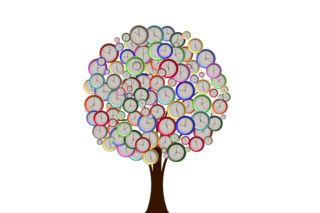Coronavirus Disease 2019
The Gift of Found Time
Making the most of cancellations during COVID-19.
Posted March 25, 2020 Reviewed by Gary Drevitch

This guest post was authored by Michelle Tullier, Ph.D.
Cancelled.
A word we’re hearing and reading a lot these days. In the professional world, that means scrapped conferences, networking events, seminars, meetings, and other gatherings where COVID-19 could be the uninvited guest in the room.
As rational people who value our health and that of our fellow humans, we understand and respect the shelter-in-place orders, social distancing, and bans on gatherings during such a dangerous pandemic. But as businesspeople and professionals in various fields, we are bound to feel disappointment, frustration, and even a sense of fear around missed opportunities for our businesses and careers.
How do we move ourselves past FOMO? Seeing these canceled events as a gift of found time is one way to do that.
Disruption and Disappointment
I’m no exception to this dilemma. A major conference I was to attend next month has been canceled. I knew this was likely to happen but anticipating the news didn’t make it any easier to stomach. You see, this conference was to be a major breakout opportunity for my business and a huge learning opportunity for me.
I had been invited to be a panelist in a plenary session at that conference. Usually, missing out on a speaking opportunity would not be much of a blow to my work life. I’m a career counselor who has been attending and presenting at conferences for career development professionals for decades. And, while I shouldn’t take my eye off the ball of lifelong learning and being a visible presence in my own field, missing a conference here or there won’t make or break those things. I have a steady flow of clients from well-established referral sources. And, I’m plugged in to state and national professional associations, as well as social media, so I can easily stay on top of trends affecting my clients and research developments affecting how I do my work. I don’t fully rely on any one conference for that.
But this one was different. For about a year now, I’ve poured time and energy into developing a new niche in my practice – career coaching for young adults and experienced professionals and executives grappling with their careers during recovery from substance use disorder and co-occurring mental health issues. I’ve developed a unique career counseling model tailored to this population, and I’ve begun doing some speaking on the topic to small groups and using it to help individual clients. This conference was going to be my first opportunity to immerse myself in the treatment and recovery world on a large-scale and to brand myself as a thought leader in the convergence of career development, mental health, and recovery. All that went away with the word “canceled.” Or did it?
Reframing Disappointment and Fear
I let myself “mourn” the loss for a couple of hours. I let thoughts and feelings make their way to the surface. They were uncomfortable. In that discomfort, my first impulse was to fill up the newly free time with coaching session slots and the usual operational and administrative tasks that go with running a small firm. As someone who battles work addiction, this is my knee-jerk reaction to any found time—fill it up with business as usual.
Then I realized something: Not only have I been given the gift of several days of open calendar, I can add one more gift myself. That gift is the permission to keep those days open. Unscheduled time is the best present I can give myself right now.
How can you reframe your reaction to the cancellations in your professional life? In a time when so much is out of our control, reframing our reactions is one way we can regain some control.
Defining One’s Own Gift of Time
Simply letting myself see this time as a gift was not enough. I still needed to define that gift. Though I moved past my first impulse to fill the days with business as usual, I didn’t do much better of a job with my second idea. My second idea was filled with too many “shoulds.” I should replicate the networking and visibility of that conference by trying to connect with the other speakers listed in the conference agenda. I should quickly put together, and somehow offer to the conference attendees, a free webinar as a platform for the talking points I would have shared in the plenary. Connecting with other speakers is not a bad idea at all and is something I’ll probably try to do little by little. And offering a webinar seems like a creative way to convey the message this pandemic is denying me the opportunity to convey at the conference. But there’s a problem with these options: They are not the best use of this found time.
The word “best” means different things to different people at different points in a professional life. For me, right now, best means articles to be written, workshop curriculum (now probably webinar curriculum) to be designed, a book proposal to compile. These are the things I want, need, and love to do but never seem to have time to do. Now I have several straight ‘found’ days that would have been spent at the conference, not to mention the days before and after that would have been consumed with preparation, packing, travel, and post-trip catch-up. With unscheduled days, I can do these things.
It’s going to take discipline and a firm out-of-office email message to keep my word to myself, but I am determined to invest that refund of time in work that brings me joy and grows my business and brand. Oh, and maybe this workaholic will also find something fun and relaxing to do that will take the place of breathing in the sea air at the canceled conference’s beachfront venue.
If you are not dealing with extensive home life disruption due to this tragic pandemic, and if you and your loved ones are healthy, you may find yourself with the gift of time due to canceled events. What do you want to do with that gift?




